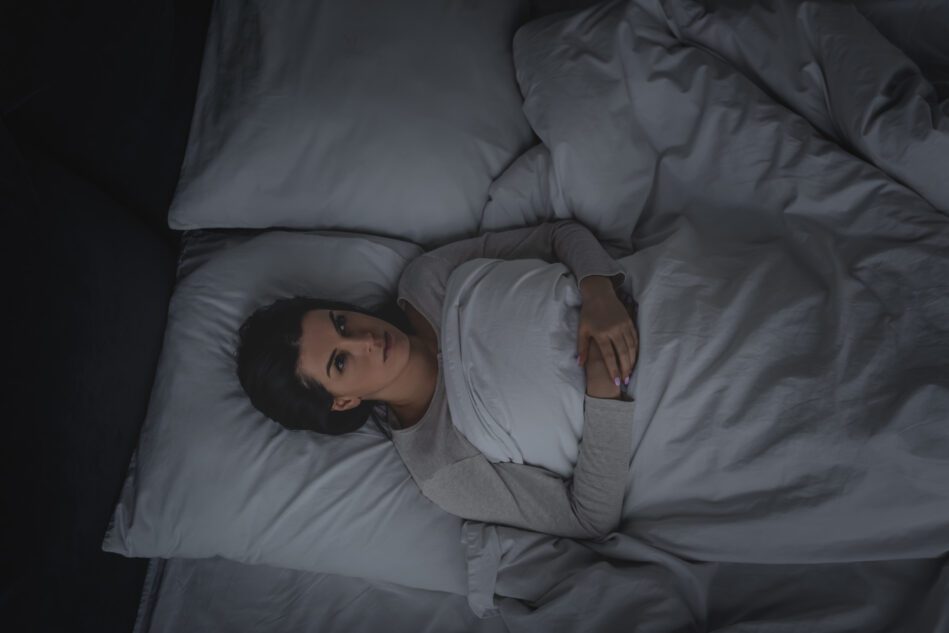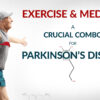Do you spend most of your nights tossing and turning? Are you tired of staring at the ceiling at night? Do you start your day feeling exhausted? You aren’t alone. An estimated 50 to 70 million Americans have sleep-related issues. About 30 percent of us struggle with short-term insomnia, and roughly one in 10 of us suffer from chronic insomnia, according to statistics from the Sleep Foundation.
You already know that bad sleep makes you feel lousy. But there’s another problem with not sleeping. Insomnia can be devastating for your brain health and mental well-being.
Sleep is vital for your brain — and chronic insomnia can have serious consequences on brain health. But the good news is there are some simple tips for getting better shut-eye.
What Is Insomnia?
Insomnia is a common sleep disorder. It can make it difficult for you to fall asleep, or hard for you to stay asleep. It can also cause you to awaken too early and then have trouble going back to sleep.
There are three main types of insomnia:
- Transient insomnia — lasts a couple days and is usually related to short-term stress, jet lag, or a time change.
- Acute insomnia — lasts several weeks and is often seen in times of grief or when there is ongoing stress due to work or relationships or work.
- Chronic insomnia — may endure for months or years. While any sleepless night can have a negative impact on your brain, this form of insomnia is especially troublesome.
Your Brain Needs You to Sleep
When you sleep, your brain doesn’t power down or go into sleep mode with you. It’s busy performing a variety of important maintenance tasks that are required for optimal brain function.
For example, while you’re dozing, your brain “cleans or washes” itself. Fascinating brain-imaging research from Boston University used EEG and MRI to peer inside people’s heads while they slept. The researchers found that the fluid inside the skull, known as cerebrospinal fluid, flows in and out in like waves during sleep. This allows the brain to clean itself by washing away cellular debris and toxins that accumulate throughout the day. It’s rather like taking out the nightly neural trash.
These neural nighttime rituals also help to consolidate learning and memory, and allow the brain to prepare for the upcoming day. The brain processes that take place while you snooze are equally critical for:
- producing neurotransmitters like dopamine, serotonin, and GABA
- improving your immune system function
- keeping your appetite under control.
Many of the neurons essential to your body’s functions are created during sleep. You need those neurons when awake to function properly.
During sleep, neurons in the hypothalamus produce sleep neurotransmitters such as GABA and galanin. At the same time, while you sleep, your body inhibits dopamine, histamine, norepinephrine, and serotonin neurons (monoaminergic neurons).
During wakefulness, the opposite occurs. Your neurons secrete dopamine, histamine, norepinephrine, and epinephrine, while inhibiting GABA. For more on the science of each of those unique neurotransmitters, and what they do for your body, review this 2022 analysis, reviewed by Dr. Puya Yazdi, MD.
Insomnia’s Impact on Your Brain
Without adequate sleep, the “brain’s maintenance crew” can’t complete the work and the trash builds up, which causes problems. Just imagine how your bathroom would look if nobody cleaned it for a month or more!
For example, getting fewer than seven hours of sleep at night is associated with lower overall blood flow to the brain. Our brain-imaging work at Amen Clinics shows that low blood flow is the number-one neuroimaging predictor of Alzheimer’s disease.
One study involving mice in the Journal of Neuroscience found that chronic insomnia is associated with the degeneration of neurons and adverse impacts on the brain’s reward system. These contribute to increased problems with attention, impairments in coping with stress, and trouble with emotional regulation.
They also contribute to cognitive issues, such as brain fog, memory problems, and dementia. In addition, research shows that sleep problems in older individuals have been linked to decreased brain volume.
Ongoing sleep disruptions are also associated with many psychiatric disorders, including depression, ADHD, anxiety, and panic attacks. Look at teenagers, for example: A sobering 2015 study found that teens who sleep just one hour less each night compared to their peers are 38 percent more likely to experience feelings of sadness and hopelessness, and more likely to consider suicide, attempt suicide, or engage in substance abuse.
Lack of sleep has caused many Americans to turn to prescription or over-the-counter sleep aids. But this comes with other potential side effects.
In fact, a study in BMJ Open shows that people taking common prescription sleep medications — such as Ambien, Lunesta, and Restoril — have a more than threefold increased risk of death. Finding natural ways to achieve restful sleep is critical.
12 Natural Ways to Improve Sleep for a Better Brain
Getting a better night’s sleep tonight can boost your brainpower tomorrow. Here are 12 simple strategies to help you get better quality sleep, so your brain can do its nightly work.
- Stick to a regular sleep schedule, even on weekends.
- Avoid caffeine, especially after lunch.
- Don’t drink alcohol. Although it’s true that alcohol will initially help you fall asleep, its effects wear off after a few hours when your brain will rebound and wake you up.
- Exercise daily, but don’t do it within a few hours of going to bed.
- Keep your room cooler, darker, and quieter.
- Turn off your tech gadgets so they don’t disturb you. The blue light they emit can mess with your circadian rhythm.
- Listen to soothing music.
- Take a warm bath before bed.
- Try aromatherapy with relaxing scents, such as lavender.
- Consider listening to a self-hypnosis audio program.
- Try calming nutritional supplements, such as magnesium and melatonin. If you’re a nighttime worrier, try 5-HTP.
- Keep a journal. If disturbing thoughts keep you awake, writing them down in a journal can help get them out of your head.
With these natural strategies, you are more likely to drift off to sleep and stay asleep. By making sleep a priority, you will also be enhancing your brain function, which makes everything in your life better.
Daniel G. Amen, MD is a physician, board-certified child and adult psychiatrist, award-winning researcher, 17-time bestselling author, and in-demand speaker. He’s Founder and CEO of Amen Clinics, which holds the world’s largest database of functional brain scans relating to behavior.
He’s lead researcher on a landmark brain imaging and rehabilitation study on pro football players. He’s been on health-related podcasts, television programs, books, articles, music albums, and movies; and made numerous court and public appearances. His new book is Change Your Brain Every Day: Simple Daily Practices to Strengthen Your Mind, Memory, Moods, Focus, Energy, Habits, and Relationships.
In the interest of full disclosure, while Amen does not have any pharmaceutical conflicts of interest per MedShadow policy, he does own BrainMD, a nutraceutical company offering supplements.






